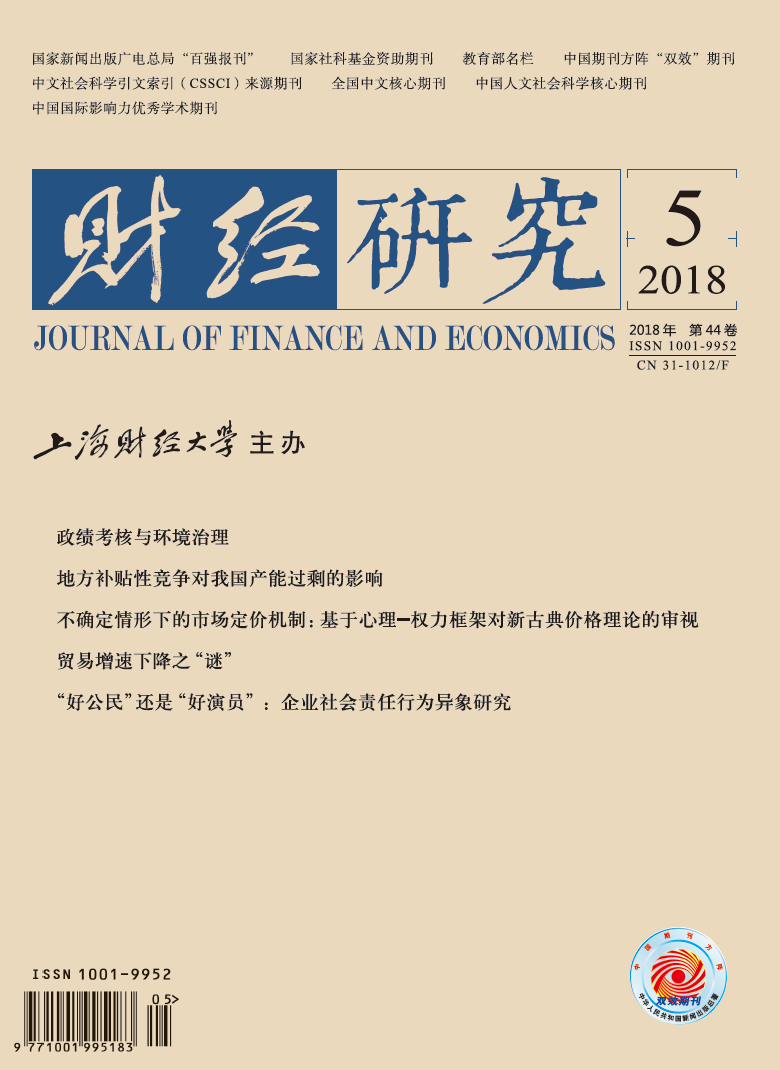With the " Chinese Dream” put forward, the study on the social mobility expectation of residents has attracted more and more attention from the academia. This paper studies the impact of opportunity inequality on the social mobility expectation of residents under the background of the government goal of achieving social fairness and justice. Opportunity inequality refers to the part of income inequality caused by environmental factors that are uncontrolled by individuals. Social mobility expectation is defined as a positive or negative psychological expectation by individuals for the flow of future social class based on the objective social environment. Although a lot of literature has revealed the importance of social mobility expectation in influencing human cognition, redistribution preferences and well-being, there are still few studies on the factors influencing social mobility expectation. This paper aims to explore the relationship between opportunity inequality, which is a relatively prominent institution and environment factor at present, and the social mobility expectation of residents. We decompose the effects of opportunity inequality on the social mobility expectation of individuals into direct and indirect effects. The direct effect refers to that the current opportunity inequality plays an important role in affecting current economic environment that individuals face, such as entrepreneurship, employment and promotion opportunities, and then has a lasting impact on future social mobility expectation. The indirect effect refers to that the current opportunity inequality, combined with the governmental policy measures for achieving the goal of social fairness and justice, affects people’s expectation of the change in future opportunity inequality and then acts on social mobility expectation. The empirical results show that: the higher the current level of opportunity inequality is, the greater the upward social mobility expectation is. And this positive effect is more pronounced in the group with poorer family background, elder age, higher education level, or non-agricultural household registration. We argue that, in the context of the governmental goal of achieving social fairness and justice, the degree of future opportunity inequality is expected to decline. Thus the adverse result of the direct effect of the opportunity inequality is offset by indirect effect, leading to the seemingly counter-intuitive conclusion. The empirical results also prove the indirect effect to some extent. Therefore, compared with the current opportunity inequality, the expectation for the changes in future opportunity inequality has more pronounced impact on the expectation of social mobility. While implementing the fair policies, the governments should carry out necessary expectation management, in order to enhance people’s trust in government departments. This will allow people to remain optimistic about future reform policy, so as to maintain the current relatively good social mobility expectation of residents.
 / Journals / Journal of Finance and Economics
/ Journals / Journal of Finance and EconomicsJournal of Finance and Economics
LiuYuanchun, Editor-in-Chief
ZhengChunrong, Vice Executive Editor-in-Chief
YaoLan BaoXiaohua HuangJun, Vice Editor-in-Chief
Study on Opportunity Inequality and Social Mobility Expectation: Empirical Analysis Based on CGSS Data
Journal of Finance and Economics Vol. 44, Issue 05, pp. 48 - 60 (2018) DOI:10.16538/j.cnki.jfe.2018.05.004
Summary
References
Summary
[1] Chen Z, Lu M, Sato H. Who entered high-wage industries? The role of social network, Hukou and labor productivities[J]. Economic Research Journal, 2009, (10): 121-132.(In Chinese)
[2] Jiang Q C, Ren J, Zhang K Z. The research on the opportunity inequality of urban residents in China[J]. The Journal of World Economy, 2014, (4): 111-138. (In Chinese)
[3] Lei X, Cheng K, Chen J Y. A re-examination of the relationship between income inequality and economic growth[J]. The Journal of World Economy, 2017, (3): 26-51. (In Chinese)
[4] Liu H W, Wang Y F. Do the returns to political capital rise or fall in China’s transition period?[J]. China Economic Quarterly, 2010, (3): 891-908. (In Chinese)
[5] Lv G M, Xu M, Li B. The research progress on opportunity inequality of income distribution[J]. Economic Perspectives, 2014, (8): 137-147. (In Chinese)
[6] Ma G R, Yang E Y. Social networks, informal finance and entrepreneurship[J]. Economic Research Journal, 2011, (3): 83-94. (In Chinese)
[7] Ou Y Y. The contemporary analysis of the relationship between expectation pursuit and social progress[J]. Modern Philosophy, 2005, (3): 50-57. (In Chinese)
[8] Yu X H, Chen X J. Empirical research on the effect of the household registration system evolvement on labor market segmentation in China: From dual perspectives of employment opportunities and wage gap[J]. Economic Research Journal, 2012, (12): 97-110. (In Chinese)
[9] Alesina A, Angeletos G M. Fairness and redistribution[J]. The American Economic Review, 2005, 95(4): 960-980.
[10] Almås I, Cappelen A W, Lind J T, et al. Measuring unfair (in)equality[J]. Journal of Public Economics, 2011, 95(7-8): 488-499.
[11] Checchi D, Peragine V. Inequality of opportunity in Italy[J]. The Journal of Economic Inequality, 2010, 8(4): 429-450.
[12] Ferreira F H G, Gignoux J. The measurement of inequality of opportunity: Theory and an application to Latin America[J]. Review of Income and Wealth, 2011, 57(4): 622-657.
[13] Lefranc A, Pistolesi N, Trannoy A. Inequality of opportunities vs. inequality of outcomes: Are western societies all alike?[J]. Review of Income and Wealth, 2008, 54(4): 513-546.
[14] Marrero G A, Rodríguez J G. Inequality of opportunity and growth[J]. Journal of Development Economics, 2013, 104: 107-122.
[15] Roemer J E. Equality of opportunity[M]. Cambridge, Mass: Harvard University Press, 1998.
Cite this article
Chen Xiaodong, Zhang Weidong. Study on Opportunity Inequality and Social Mobility Expectation: Empirical Analysis Based on CGSS Data[J]. Journal of Finance and Economics, 2018, 44(5): 48-60.
Export Citations as:
For




 9237
9237  10923
10923

